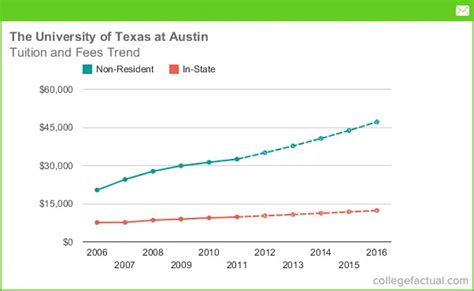Are you a Texas resident dreaming of attending the prestigious University of Texas at Austin (UT Austin)? If so, you’re in luck. Here’s a comprehensive guide to help you understand the ins and outs of in-state tuition at UT Austin.

Eligibility Requirements
To qualify for in-state tuition at UT Austin, you must meet the following criteria:
- Be a Texas resident for at least 12 consecutive months immediately preceding your desired enrollment date.
- Have established a domicile in Texas, meaning you have a permanent residence and intend to make Texas your permanent home.
- Have graduated from a Texas high school or have obtained an equivalent degree through homeschooling or other means.
Tuition Costs
For the 2023-2024 academic year, the in-state tuition for UT Austin is $10,824 per year. This includes mandatory fees and other charges.
Financial Aid and Scholarships
UT Austin offers various forms of financial aid and scholarships to help students offset the cost of tuition. These include:
- Need-based financial aid: Awards based on financial need, such as the Pell Grant and Federal Supplemental Educational Opportunity Grant (FSEOG).
- Merit-based scholarships: Awards based on academic achievement, such as the UT Austin Presidential Scholarship and the Forty Acres Scholarship.
- Outside scholarships: Scholarships awarded by organizations and institutions outside of UT Austin, such as the Coca-Cola Scholars Program and the Horatio Alger Scholarship.
Applying for In-State Tuition
To apply for in-state tuition at UT Austin, follow these steps:
- Create an application account on the UT Austin Office of Admissions website.
- Complete the application form and submit all required documents, including proof of Texas residency and graduation.
- Pay the application fee of $90.
- Submit your application by the deadline.
Deadlines and Important Dates
- Priority Application Deadline: November 1 for the fall semester and May 1 for the spring semester.
- Regular Application Deadline: May 15 for the fall semester and December 1 for the spring semester.
- Financial Aid Application Deadline: Priority deadline is February 1 for the fall semester and October 15 for the spring semester.
Common Mistakes to Avoid
- Applying late: Submitting your application after the deadlines can reduce your chances of admission and financial aid.
- Not providing sufficient proof of Texas residency: Ensure you have the necessary documentation to prove your residency, such as a driver’s license, voter registration card, or utility bill.
- Not applying for financial aid: Even if you don’t think you qualify for financial aid, it’s essential to apply. UT Austin awards millions of dollars in financial aid each year.
- Ignoring scholarship opportunities: Explore various scholarship options and apply for those that align with your qualifications.
Pros and Cons of In-State Tuition
Pros:
- Significant cost savings compared to out-of-state tuition.
- Reduced financial burden on students and families.
- Increased access to higher education for Texas residents.
Cons:
- Residency requirements can be challenging to meet for some students.
- Competition for admission and financial aid may be higher for in-state students.
- May limit opportunities for students to attend out-of-state universities.
Tables
Table 1: In-State vs. Out-of-State Tuition at UT Austin
| Tuition Type | 2023-2024 Academic Year |
|---|---|
| In-State Tuition | $10,824 |
| Out-of-State Tuition | $37,784 |
Table 2: Financial Aid Statistics at UT Austin
| Financial Aid Type | Average Award Amount | Total Awards |
|---|---|---|
| Pell Grants | $6,875 | 50,000+ |
| FSEOG | $1,000 | 15,000+ |
| University Scholarships | $3,000 – $25,000 | 10,000+ |
Table 3: Application Deadlines for UT Austin
| Application Type | Fall Semester | Spring Semester |
|---|---|---|
| Priority Application Deadline | November 1 | May 1 |
| Regular Application Deadline | May 15 | December 1 |
Table 4: Proof of Texas Residency Requirements
| Document | Description |
|---|---|
| Driver’s License | Must have a valid Texas driver’s license. |
| Voter Registration Card | Must be registered to vote in Texas. |
| Utility Bill | Must have a utility bill addressed to your residence in Texas. |
